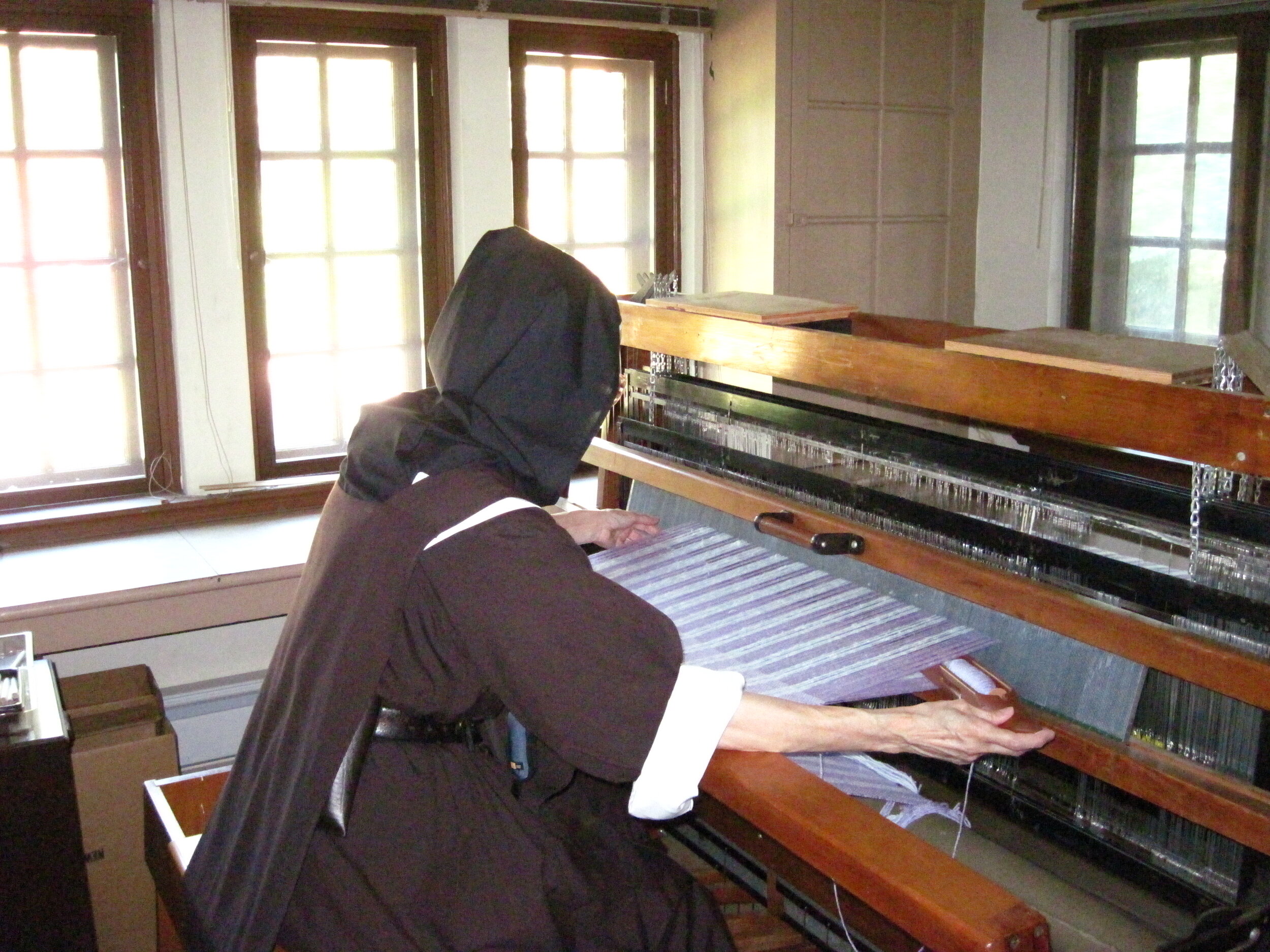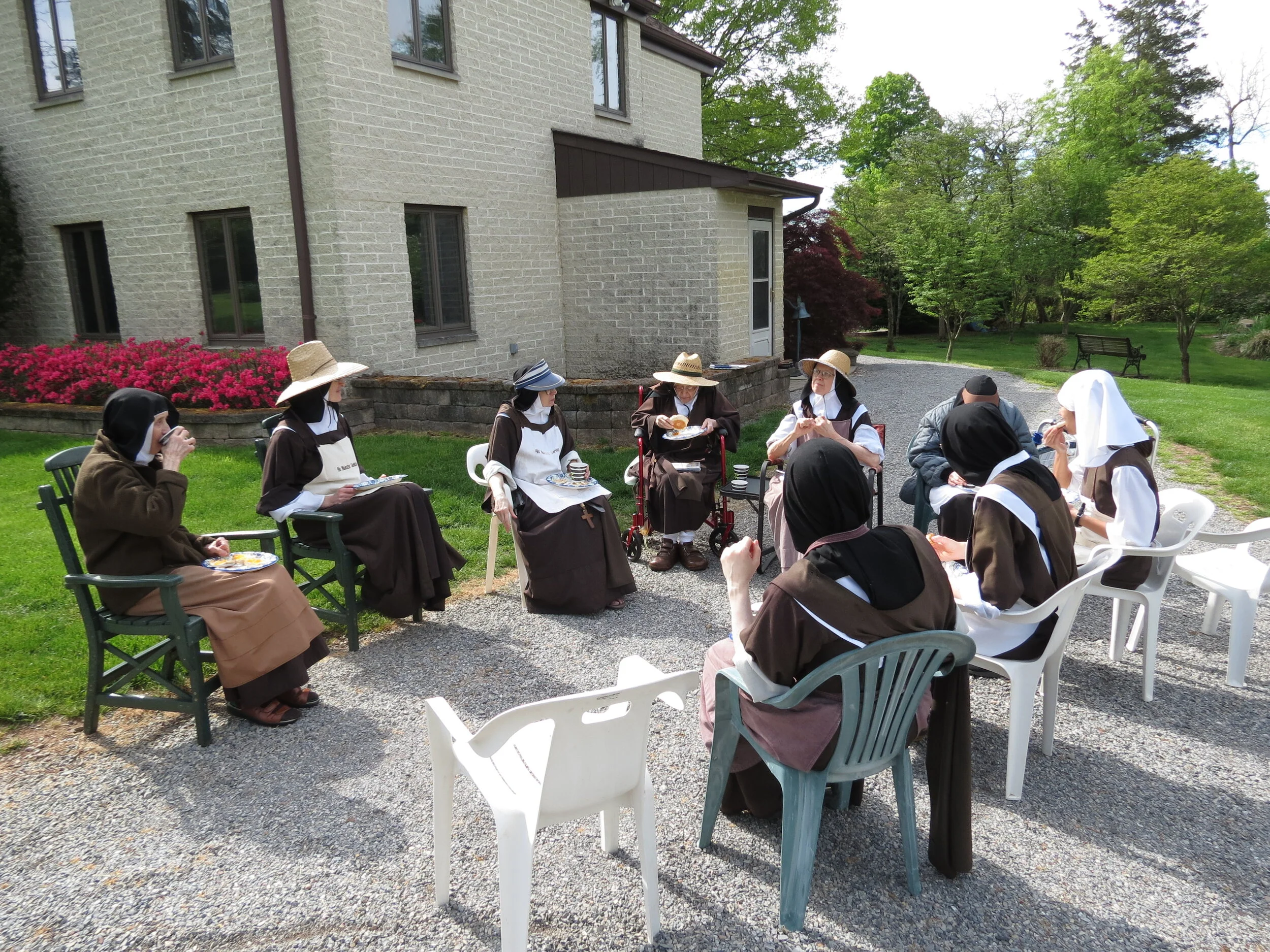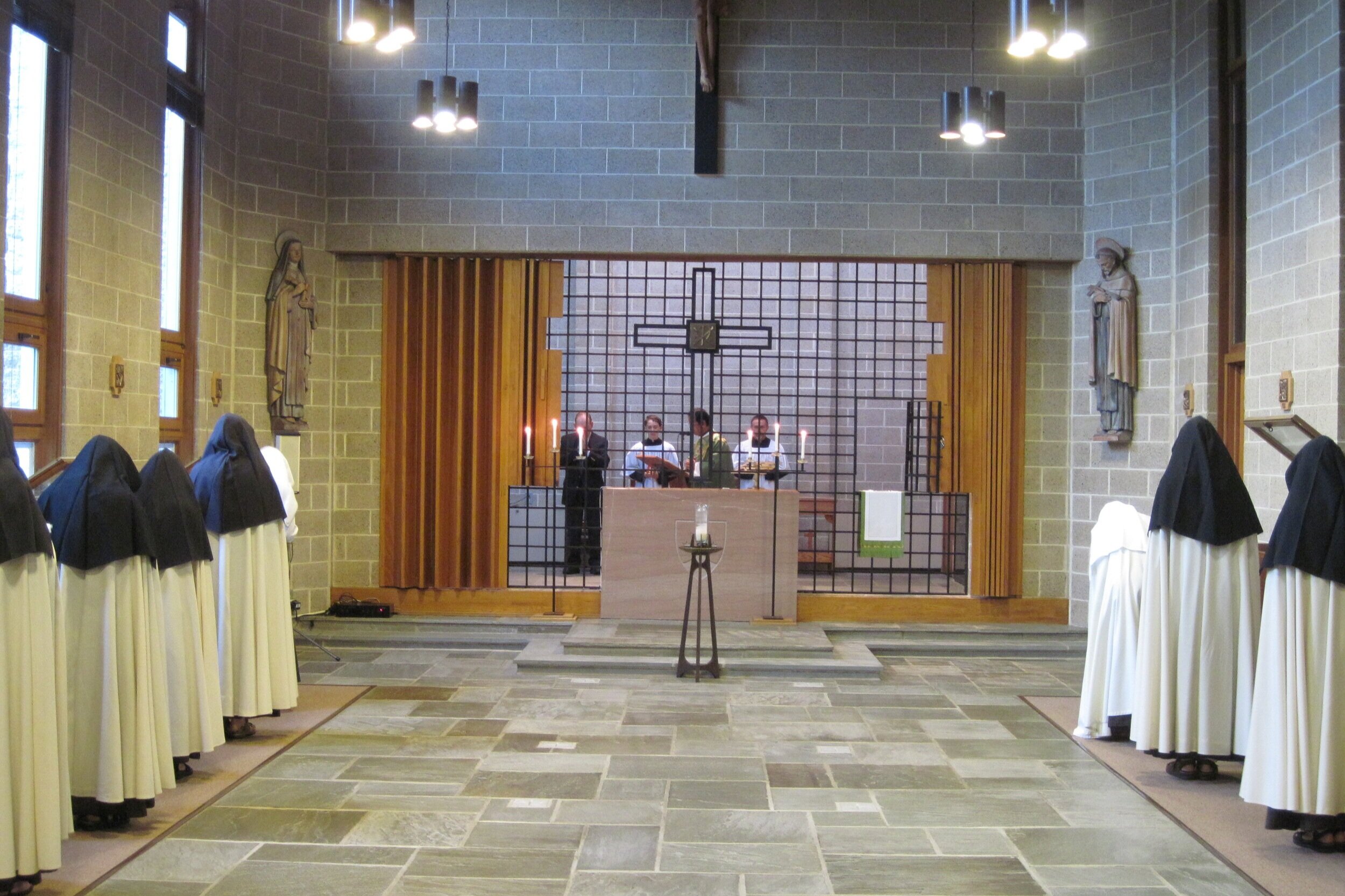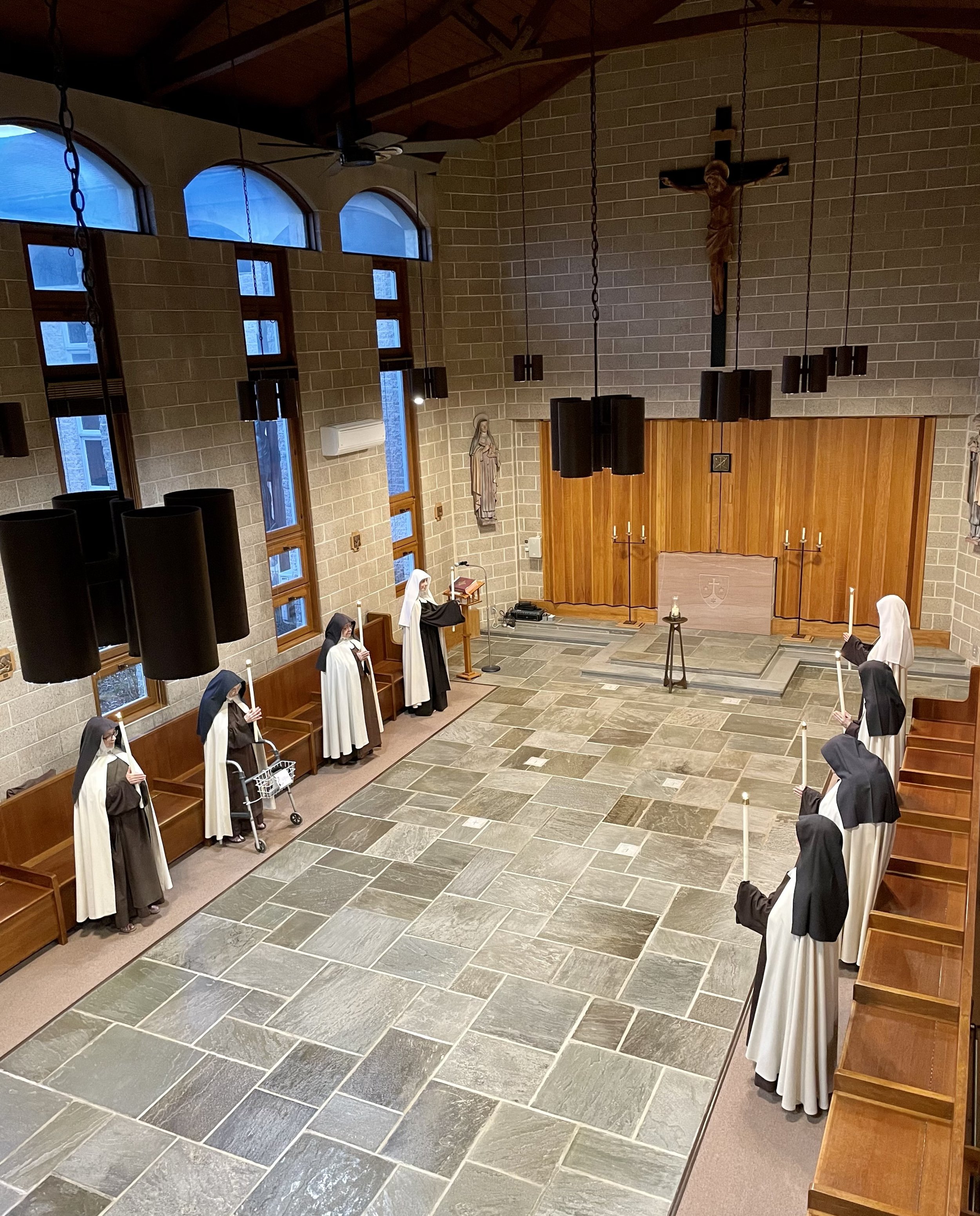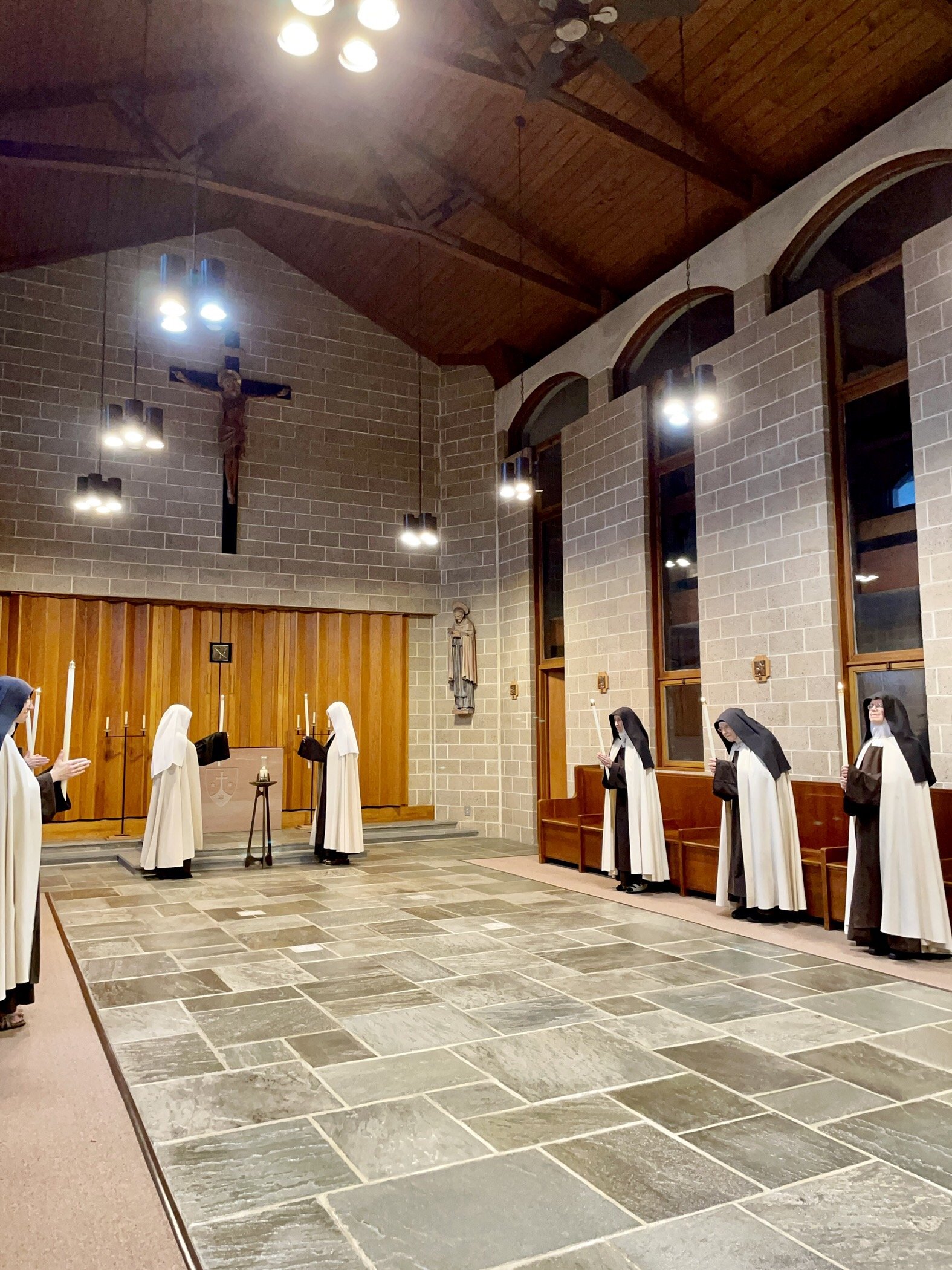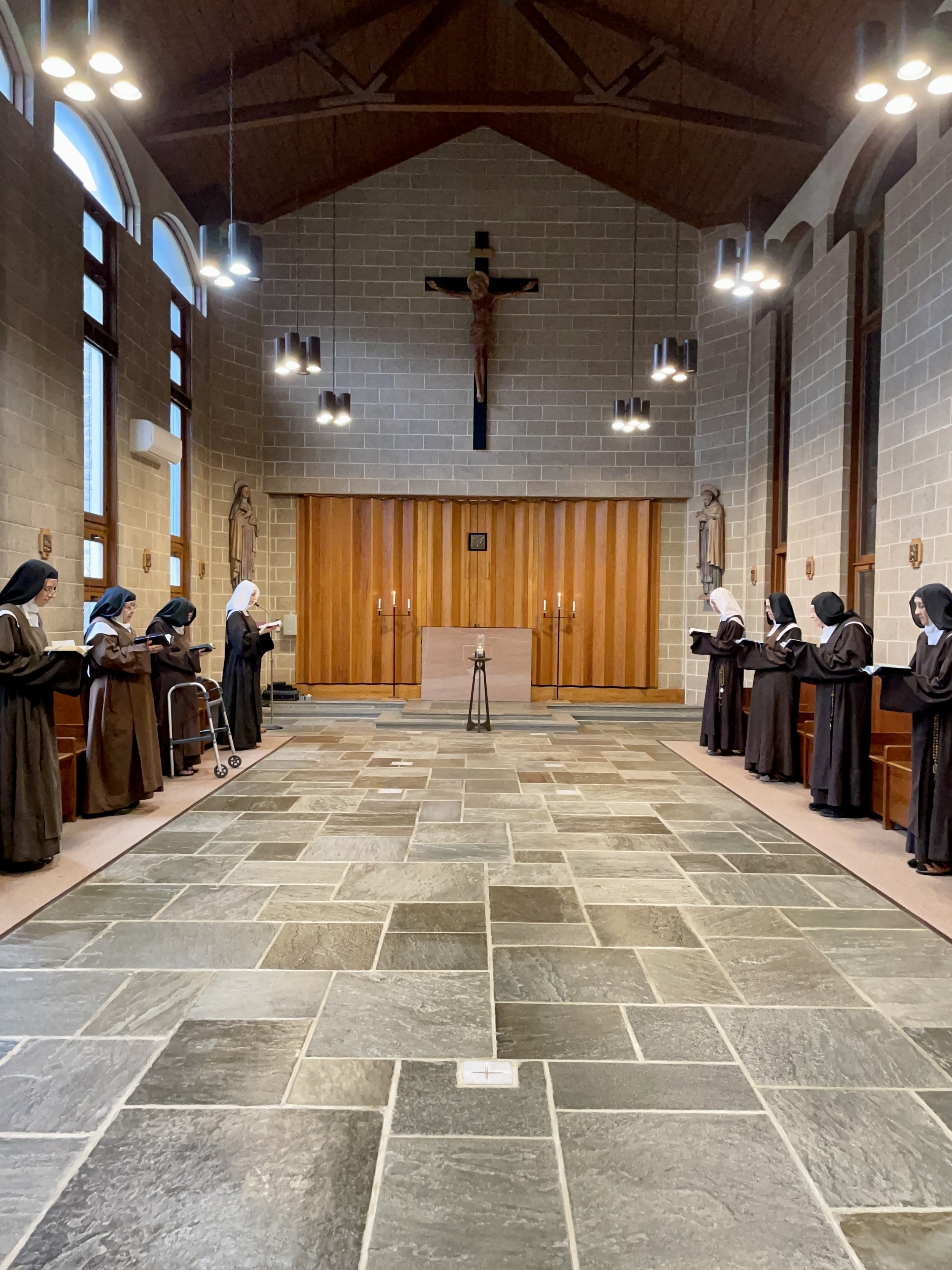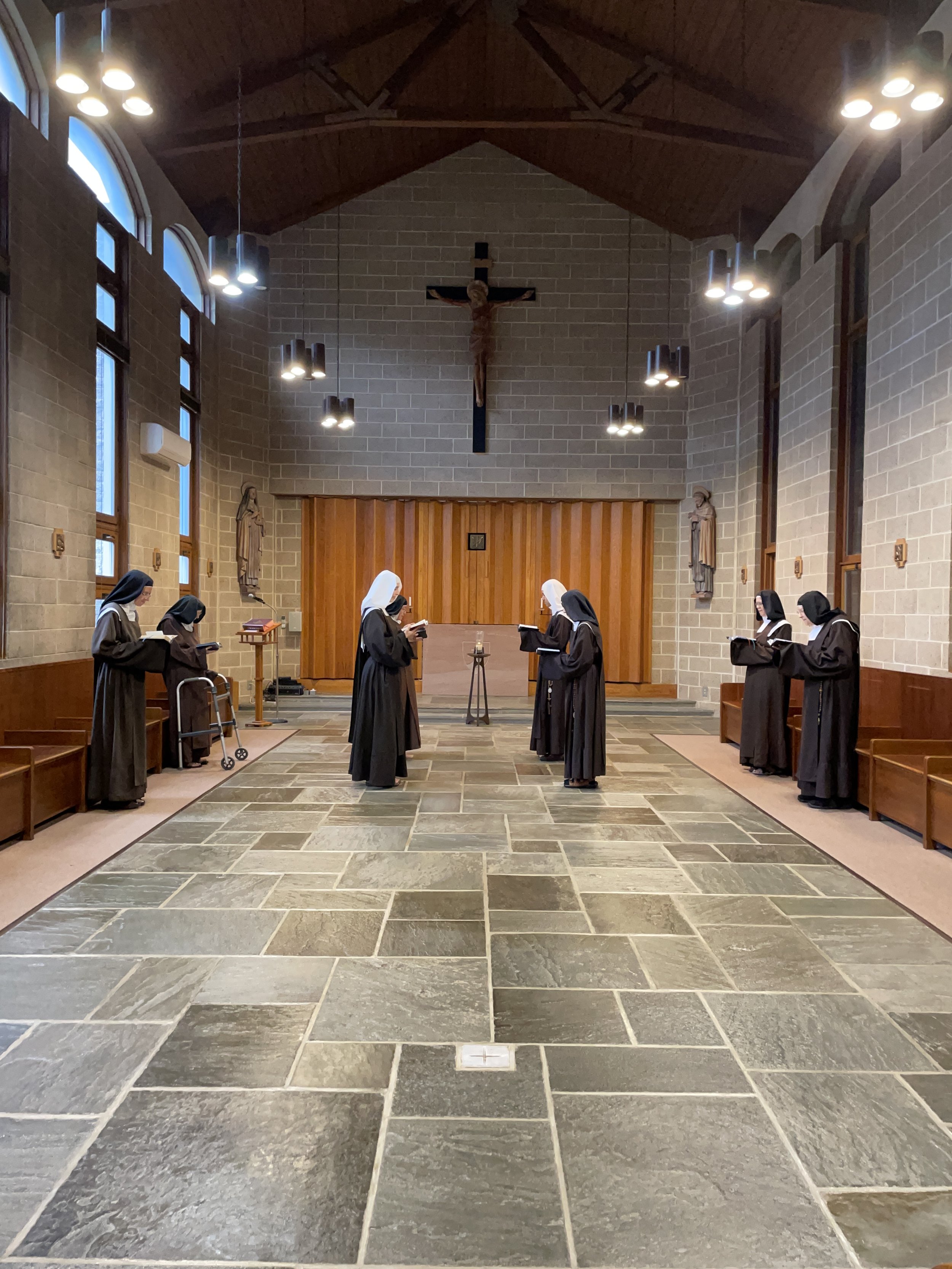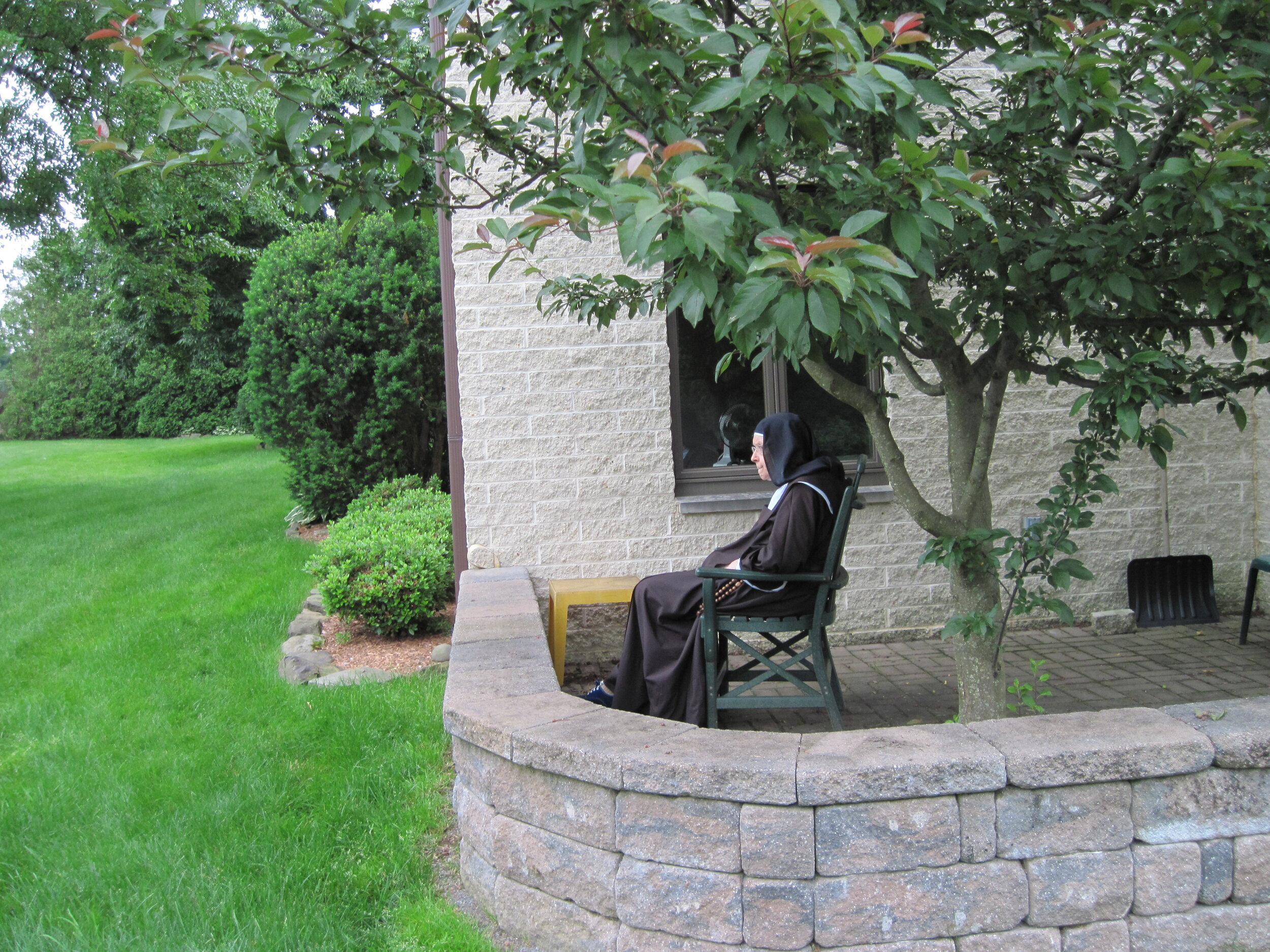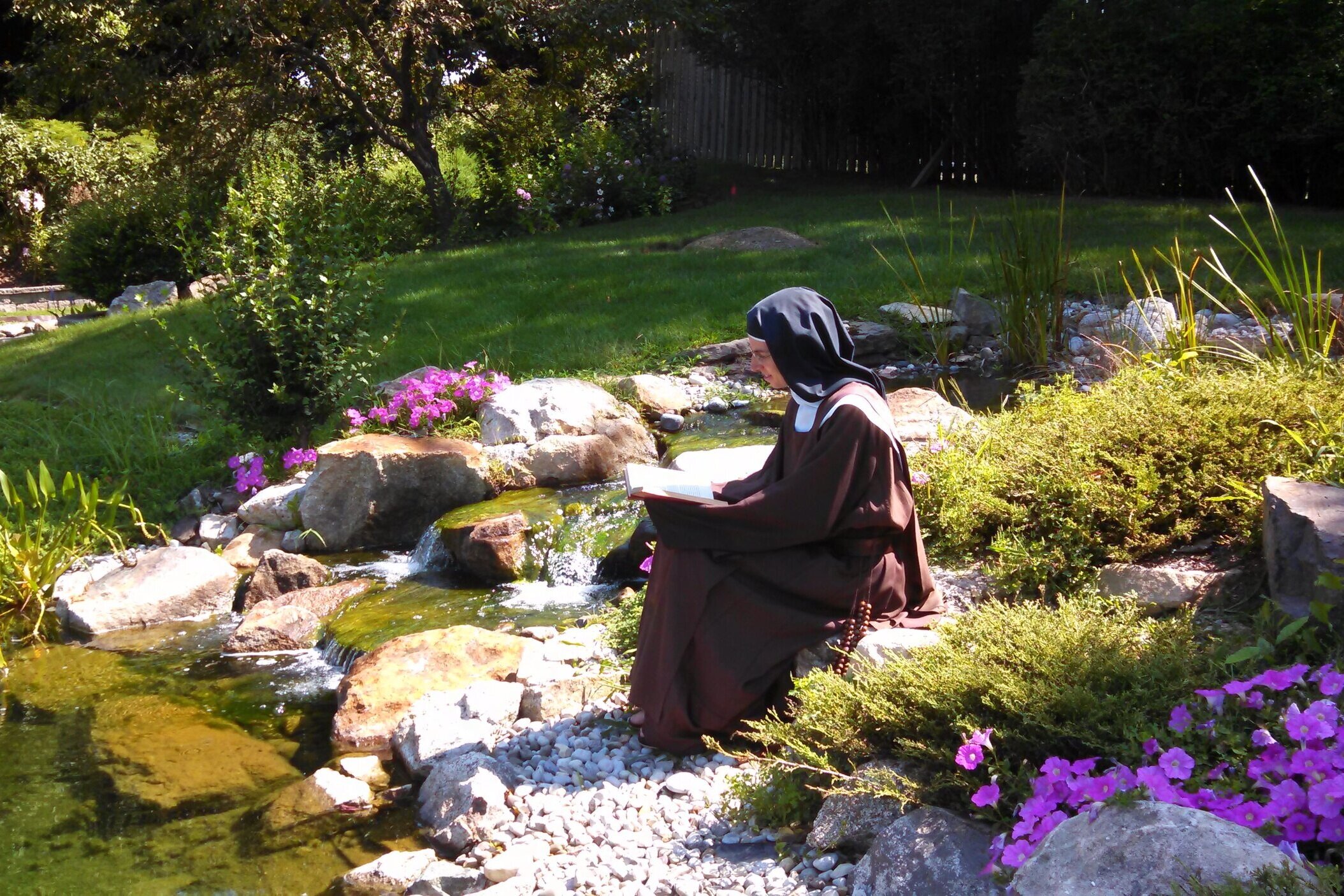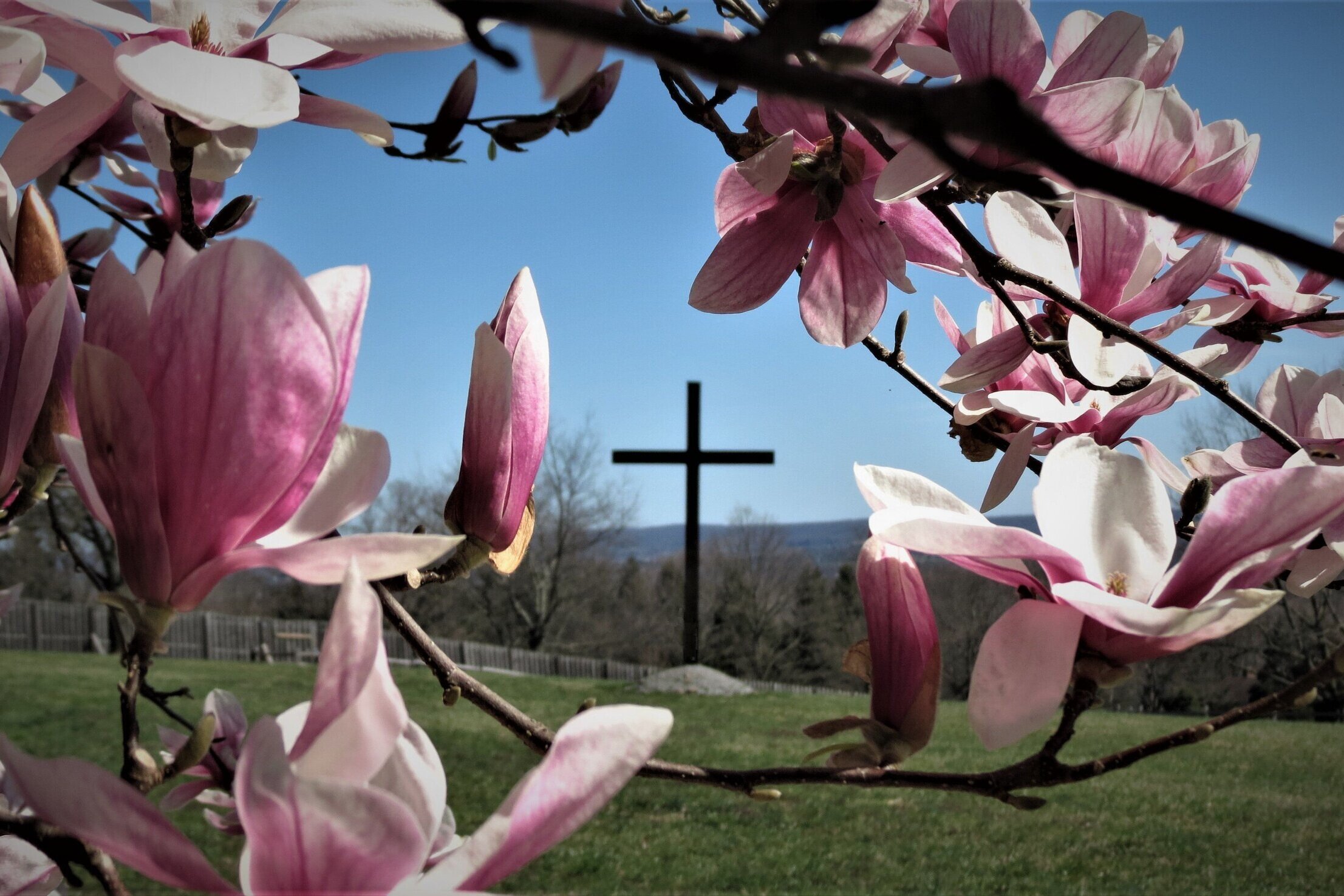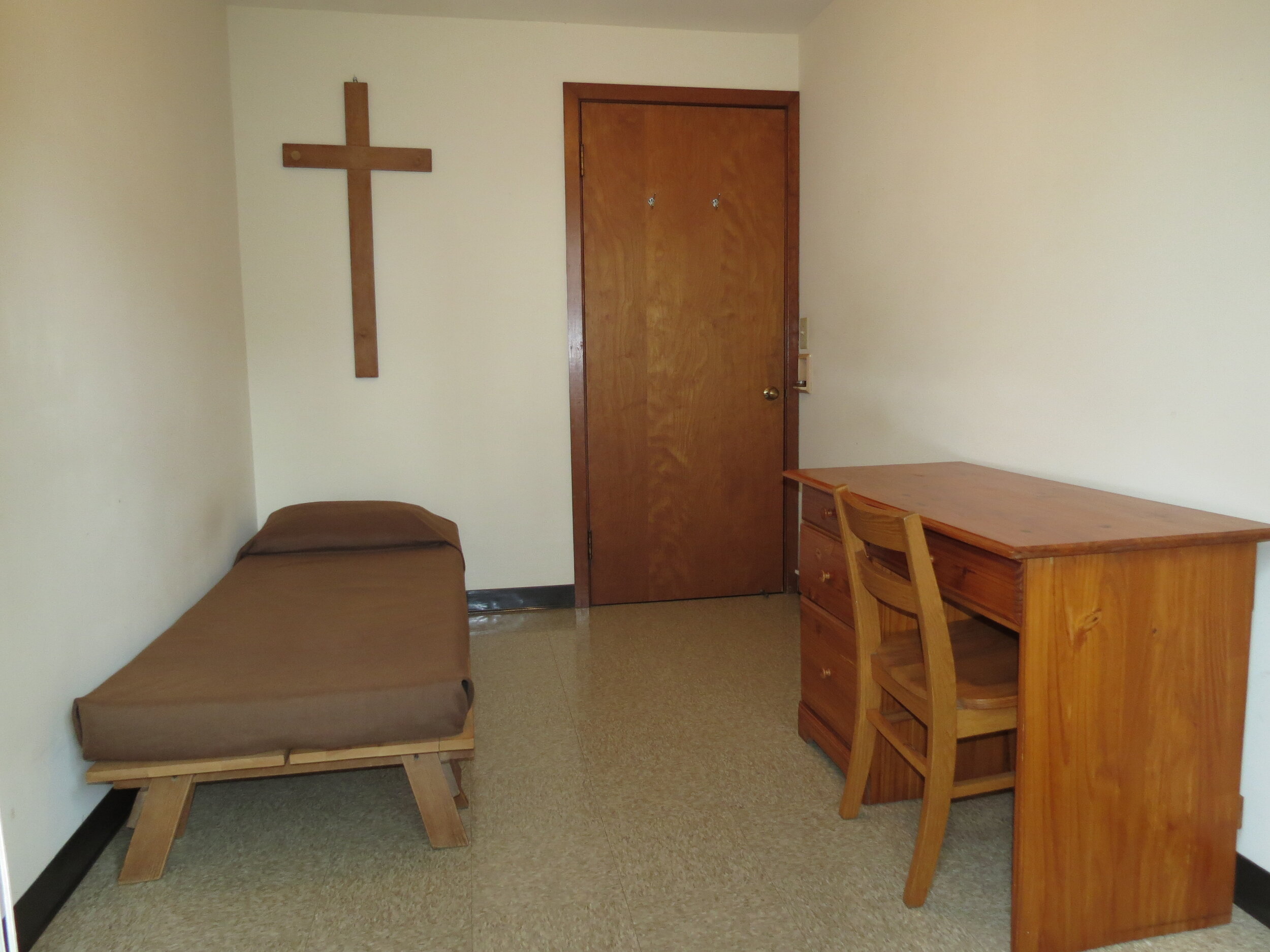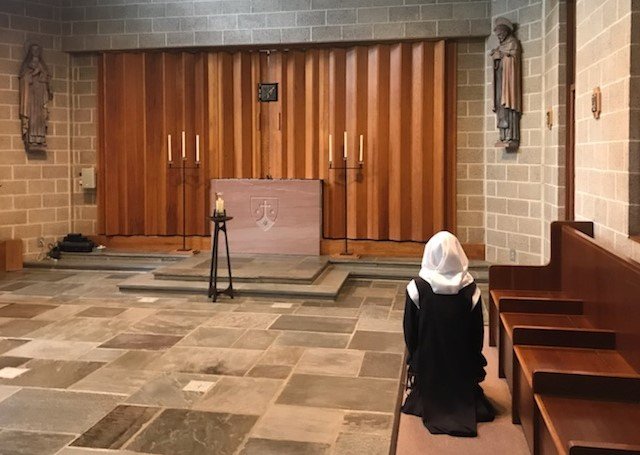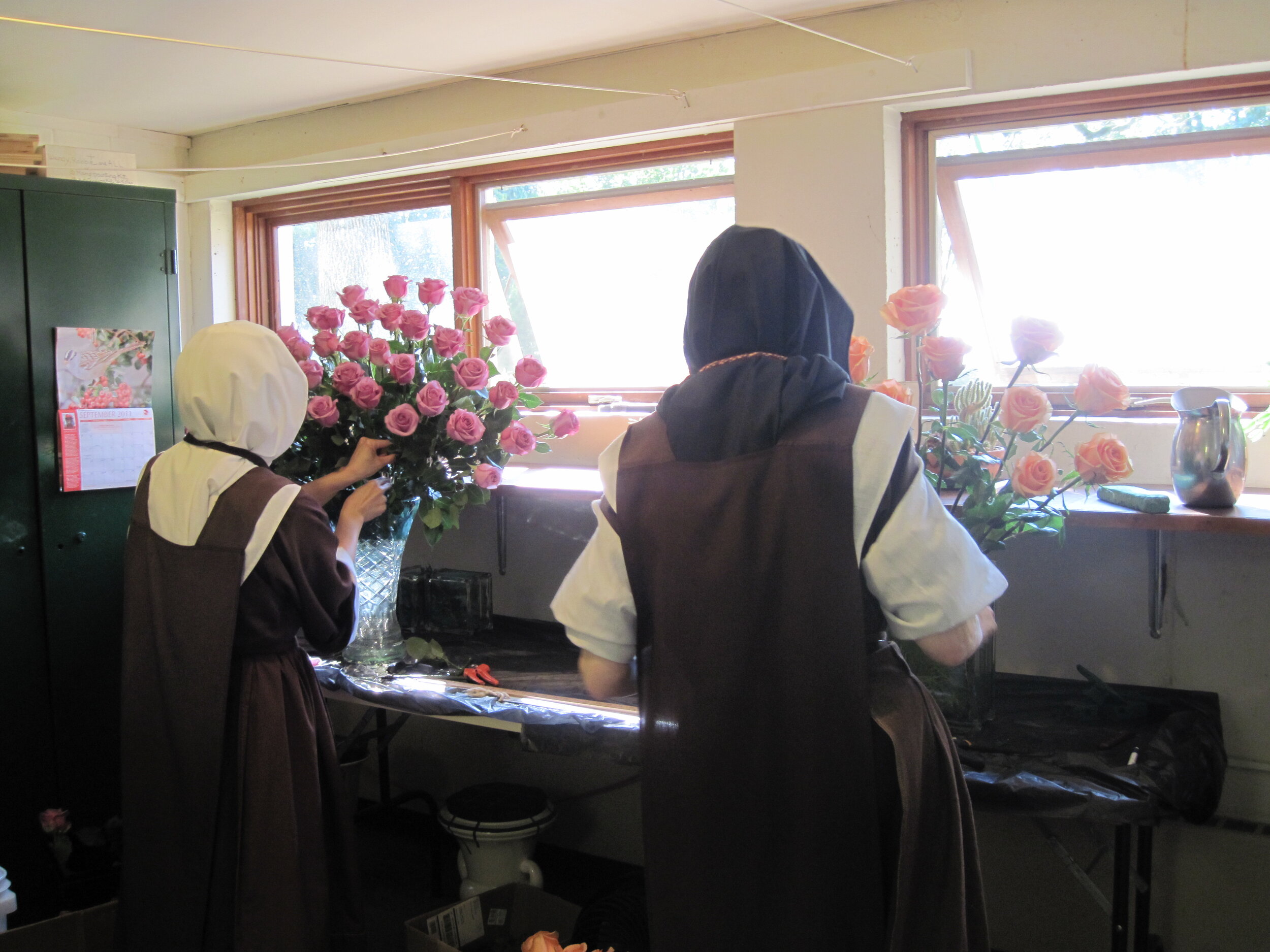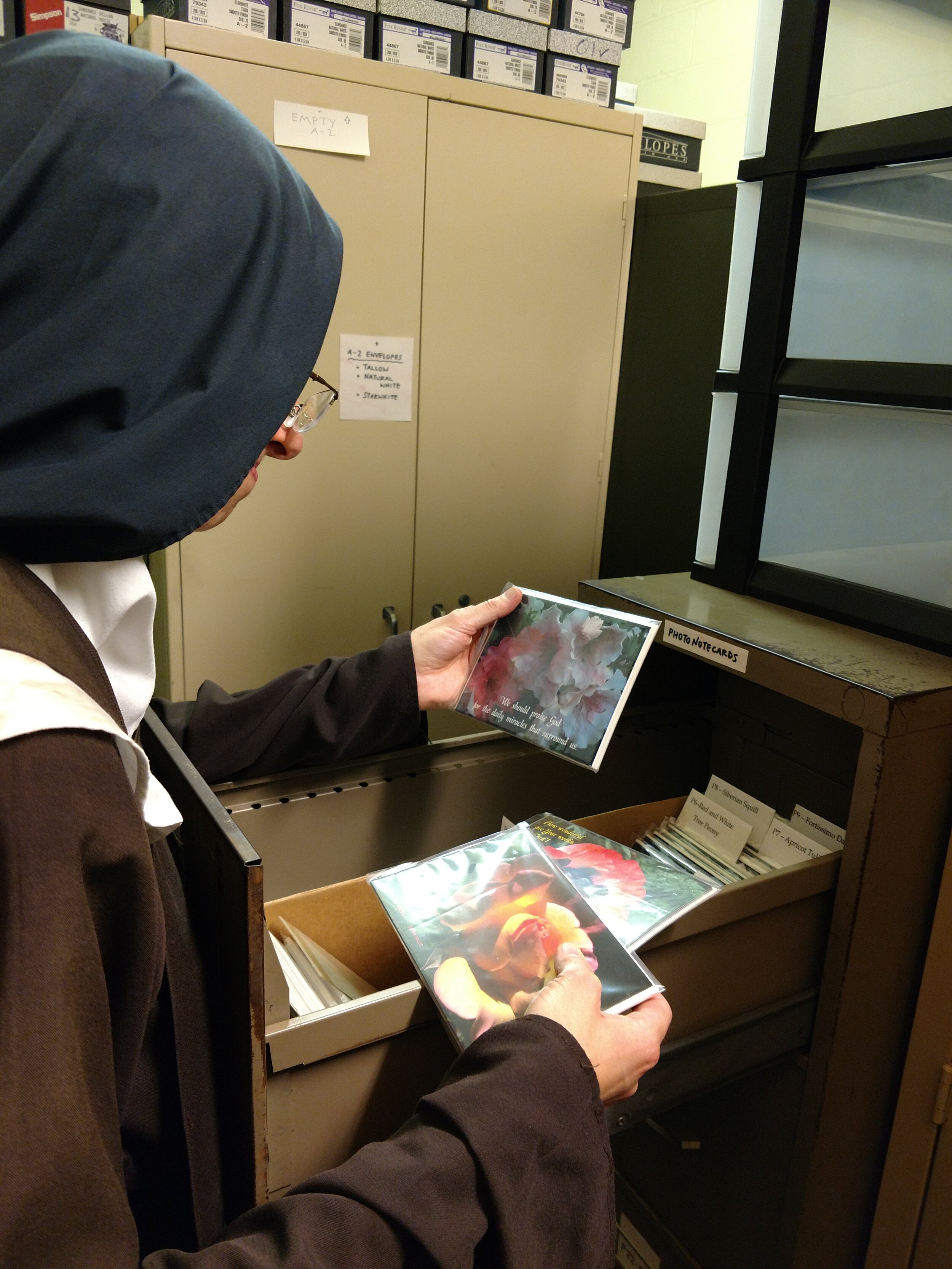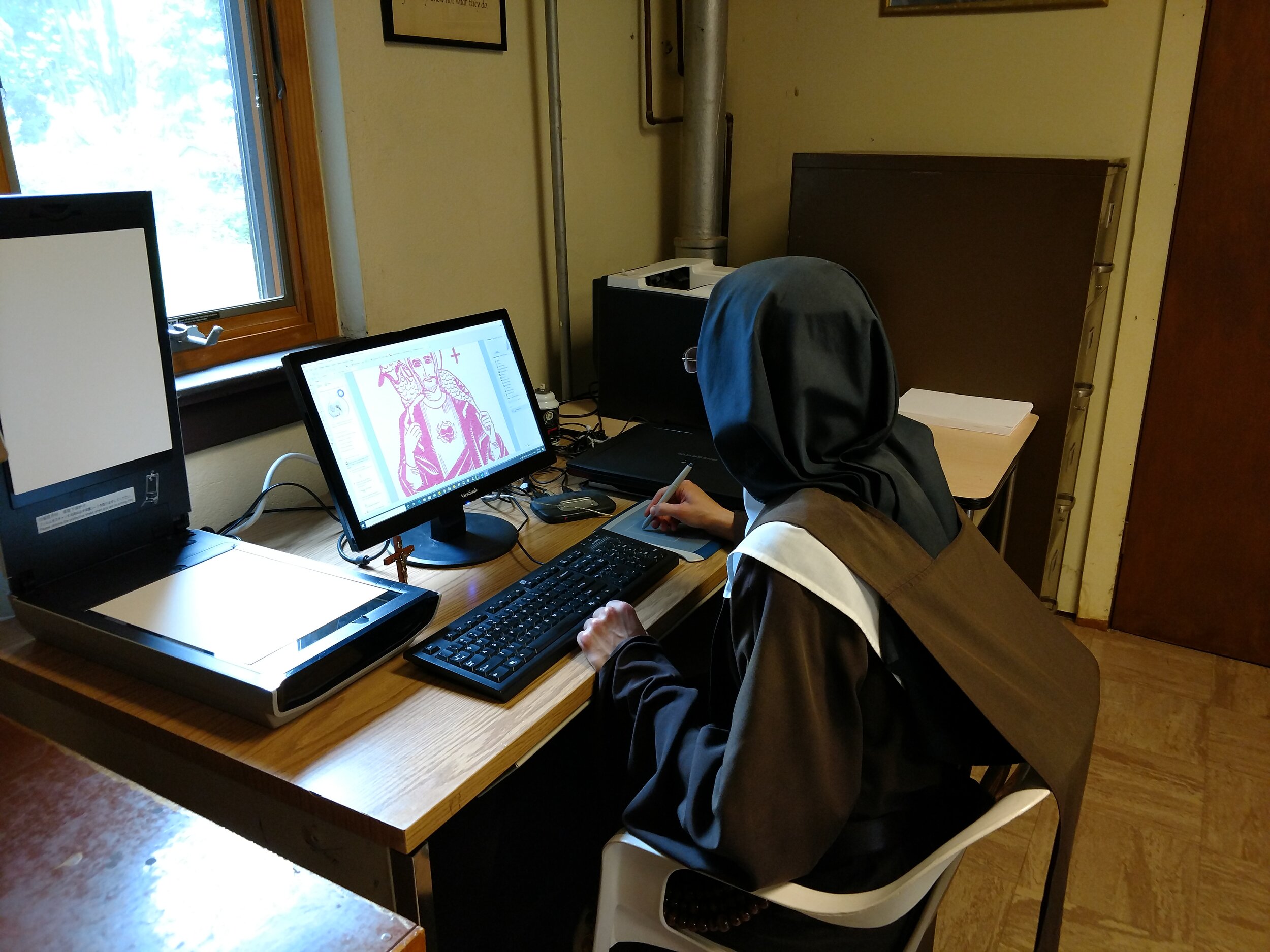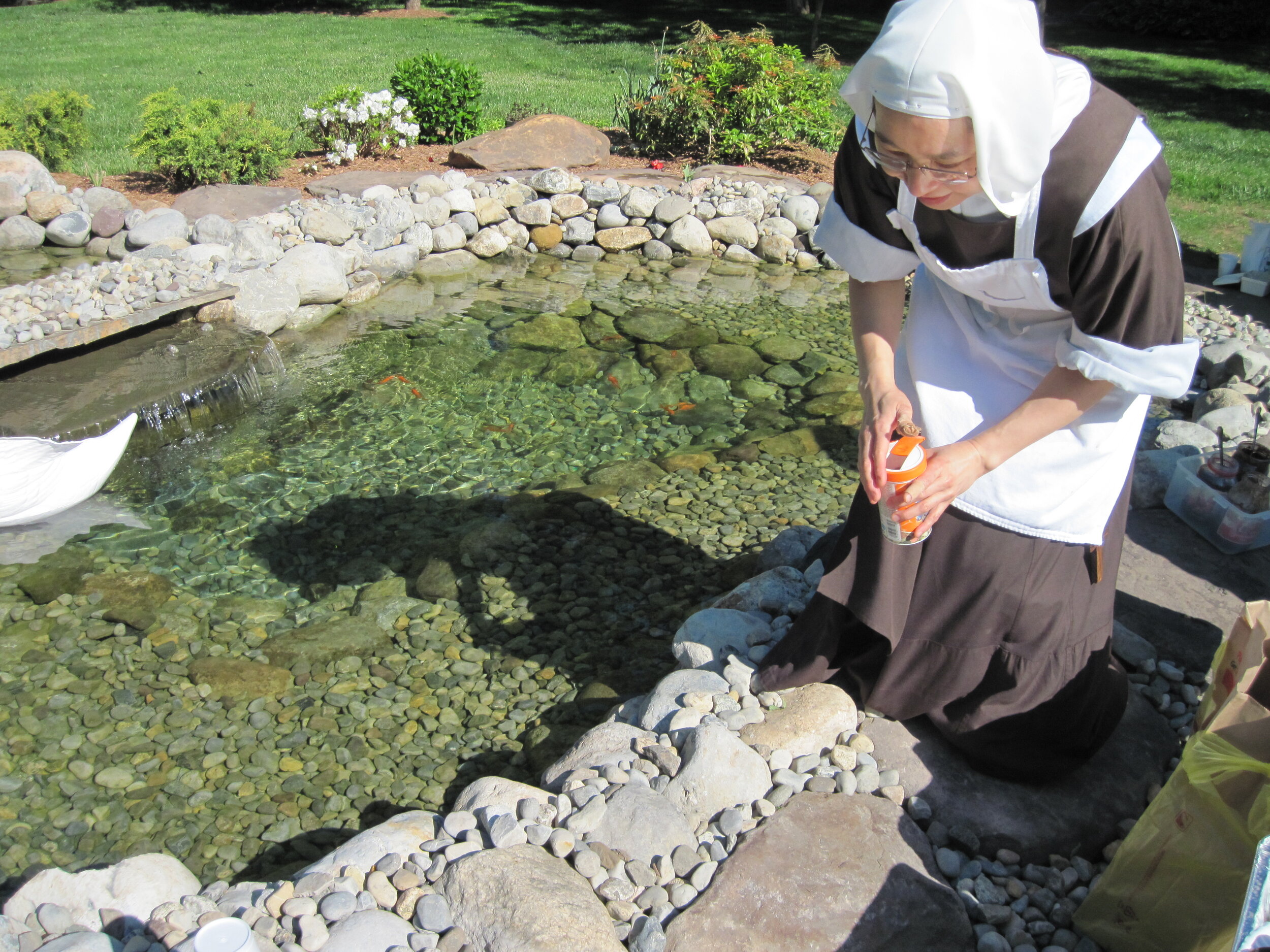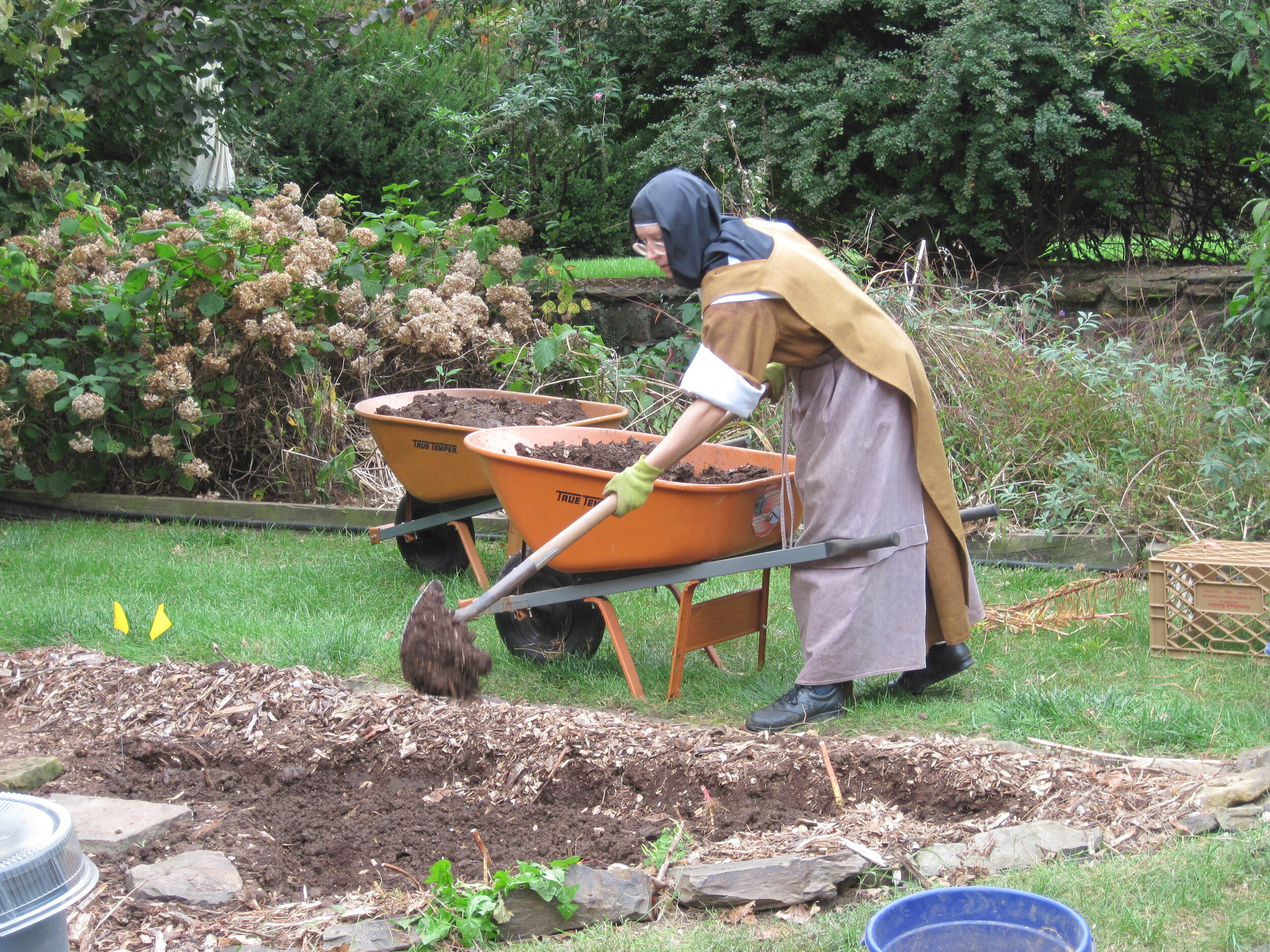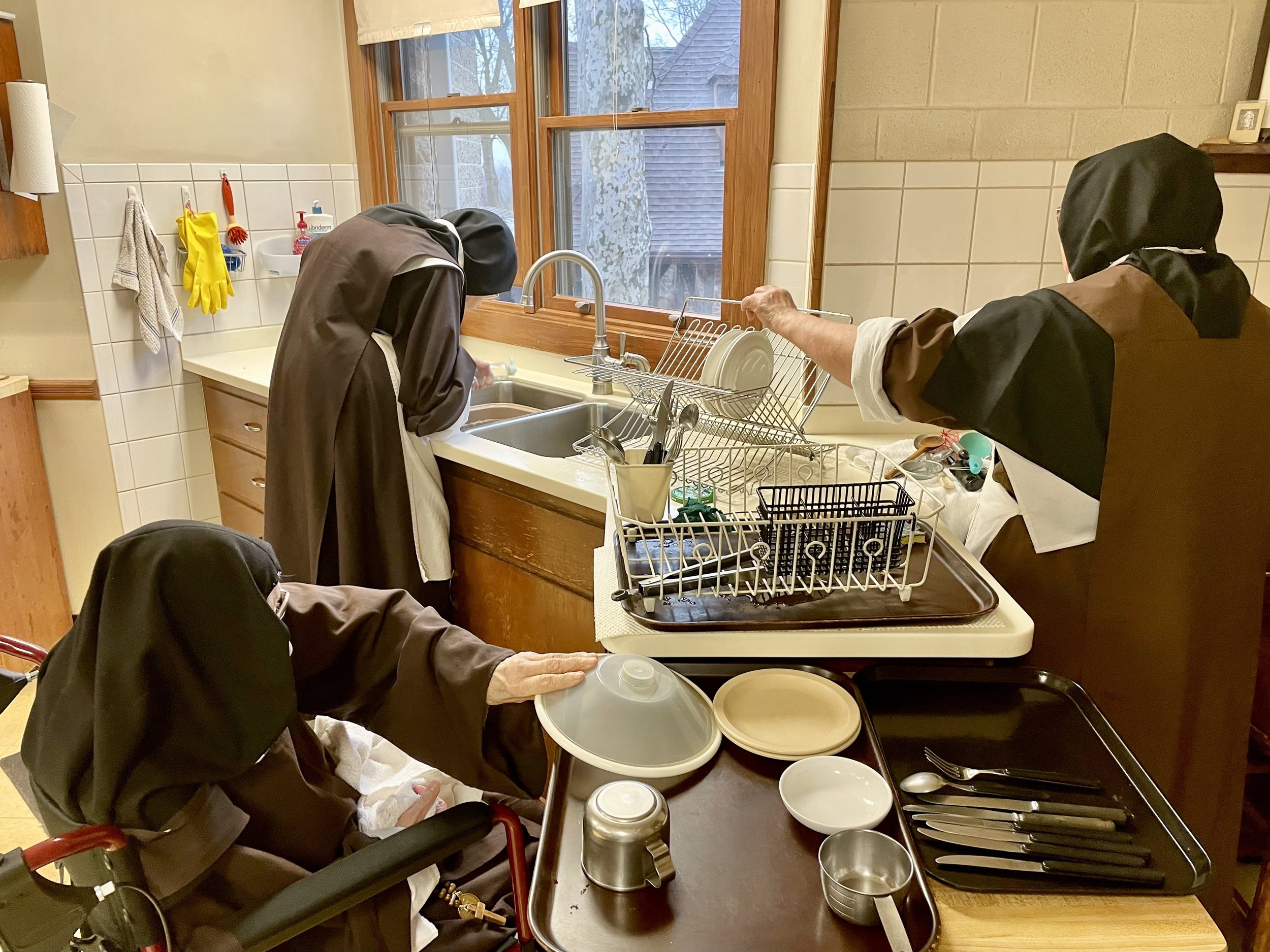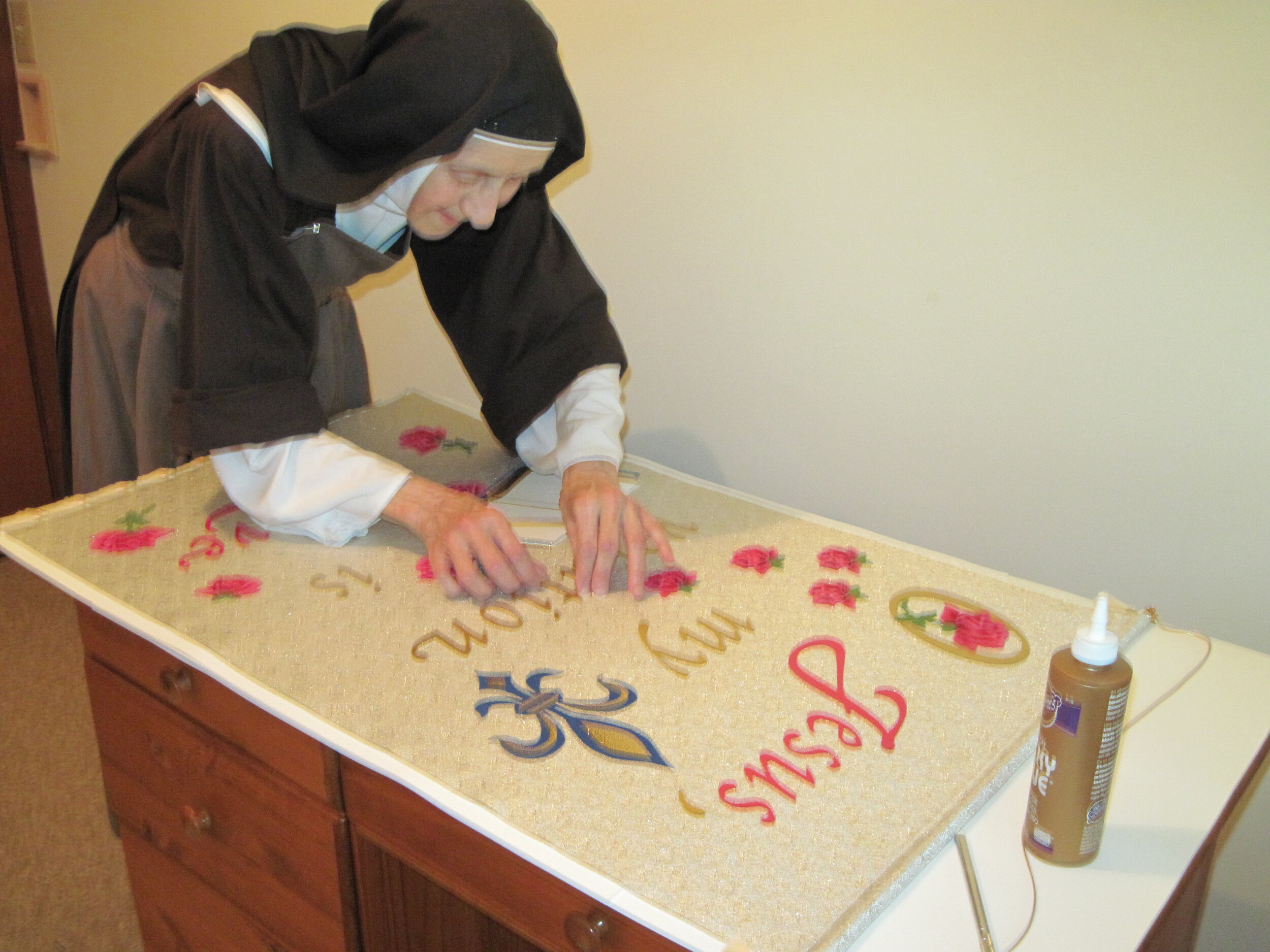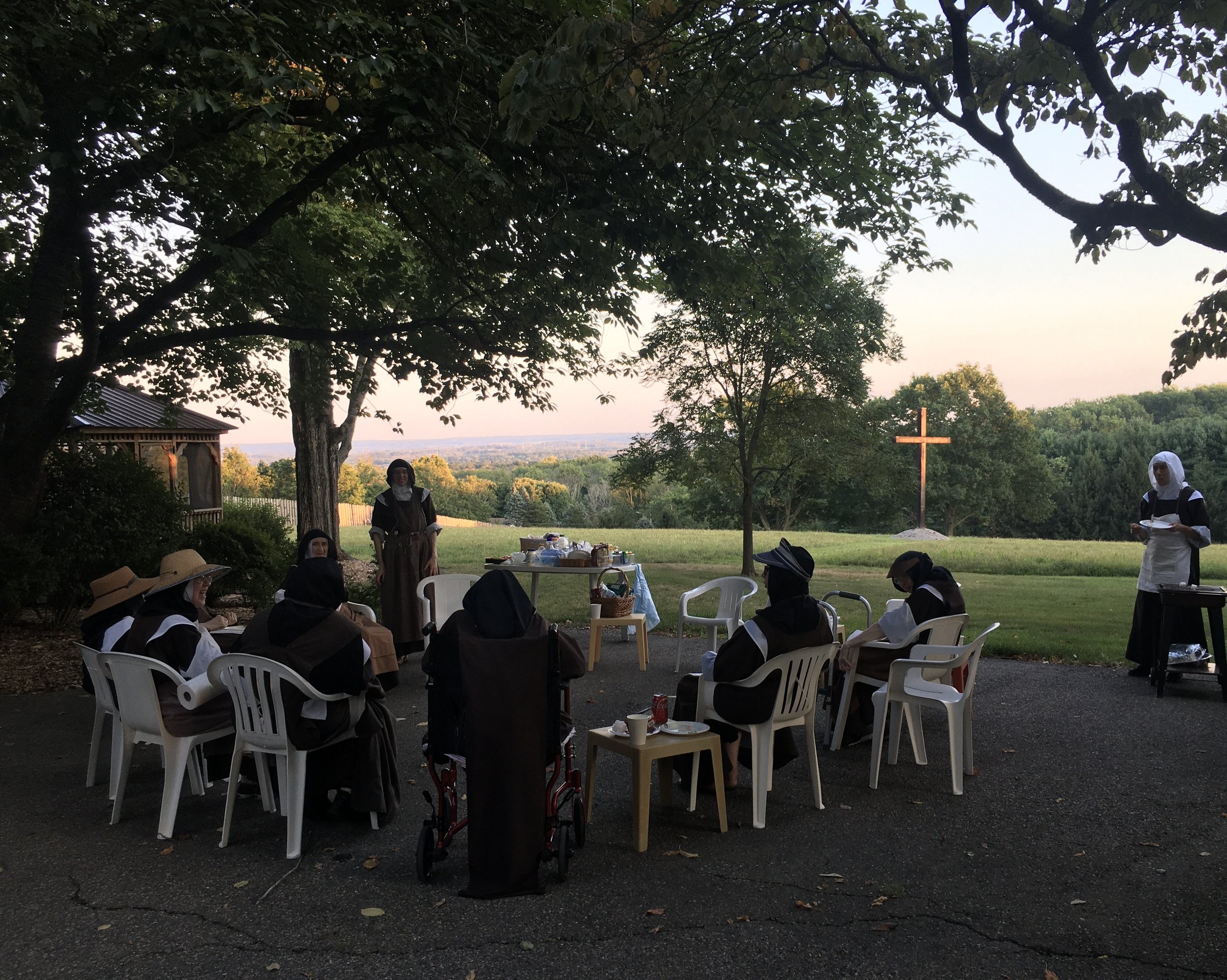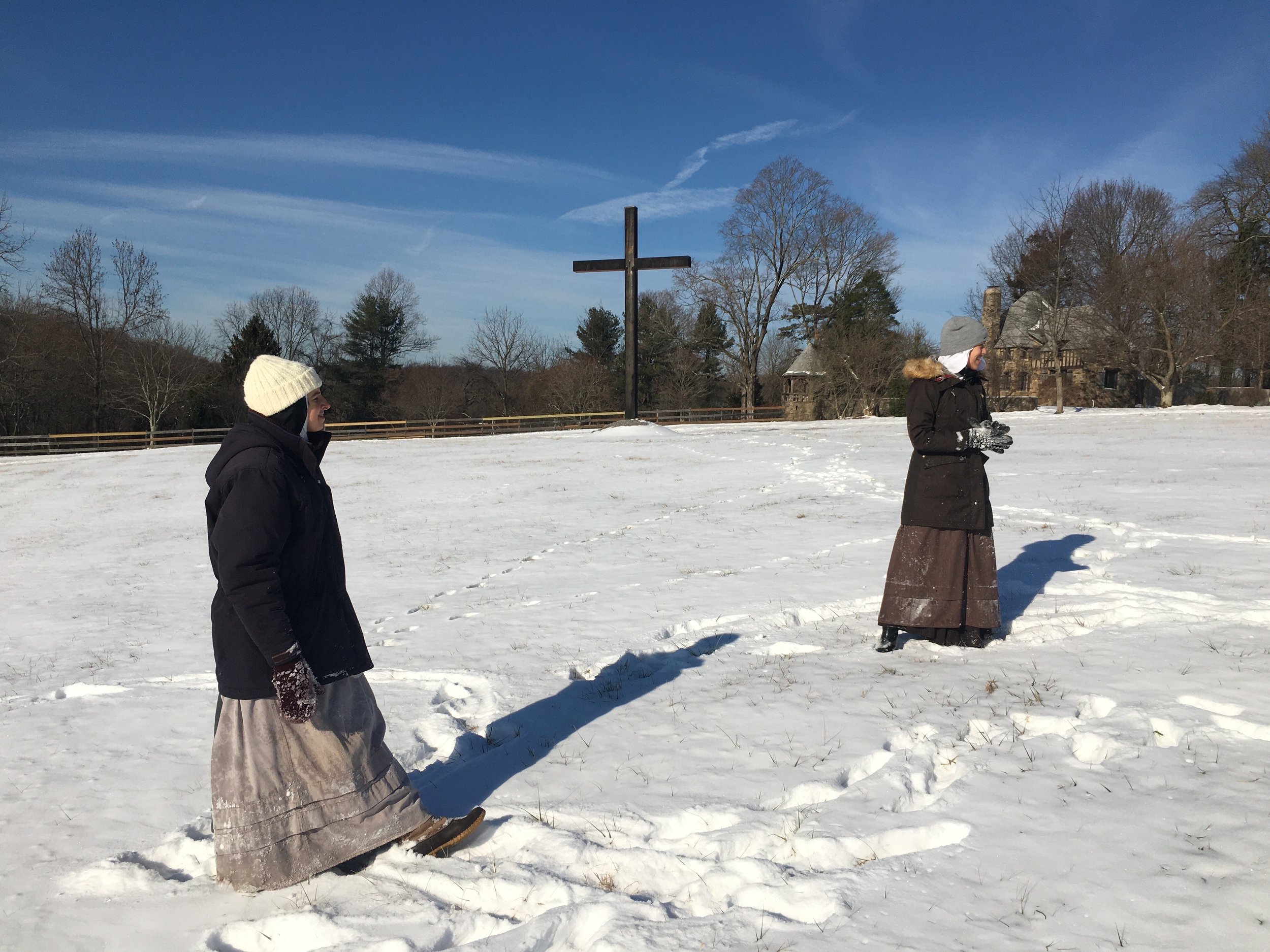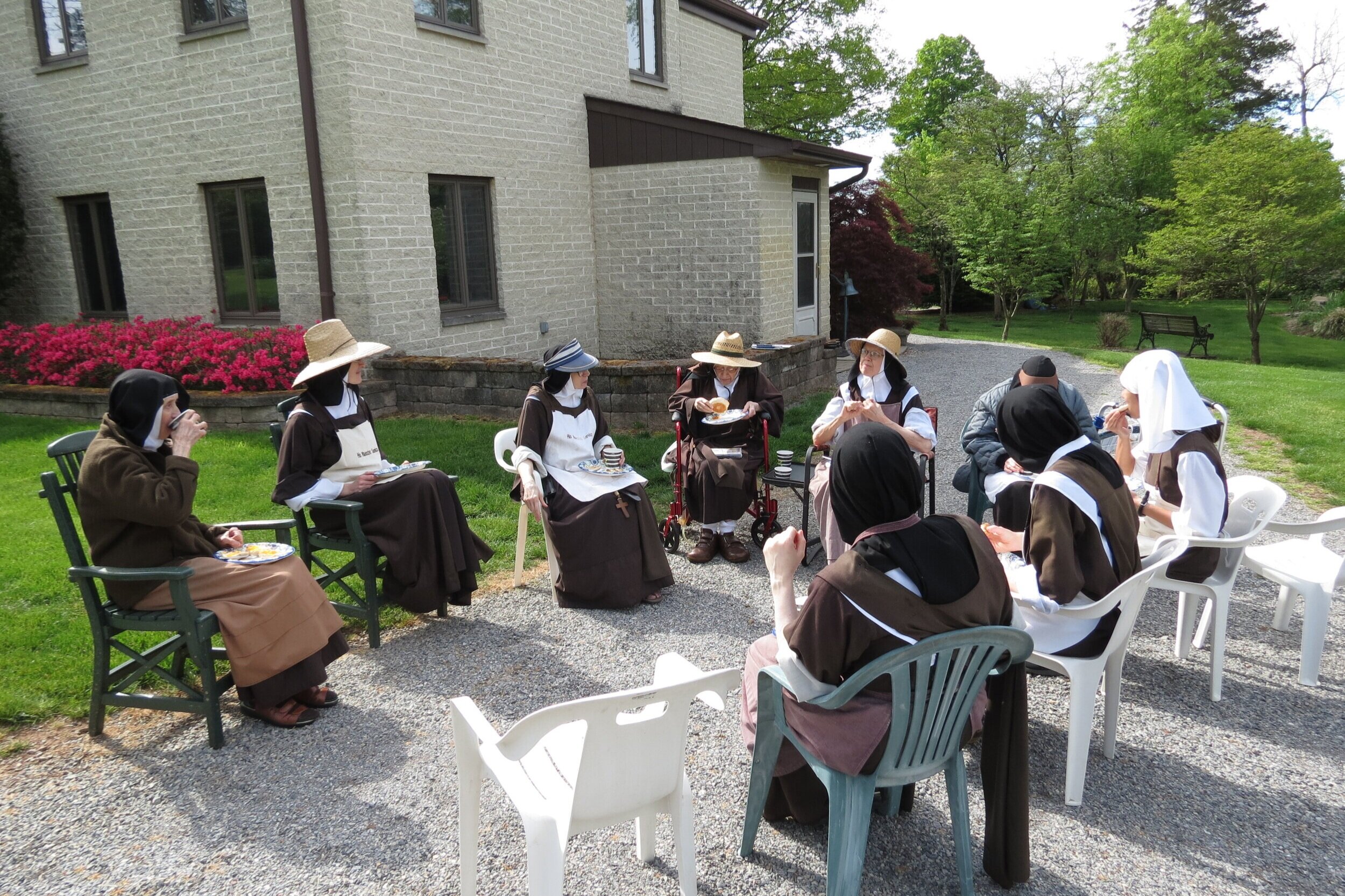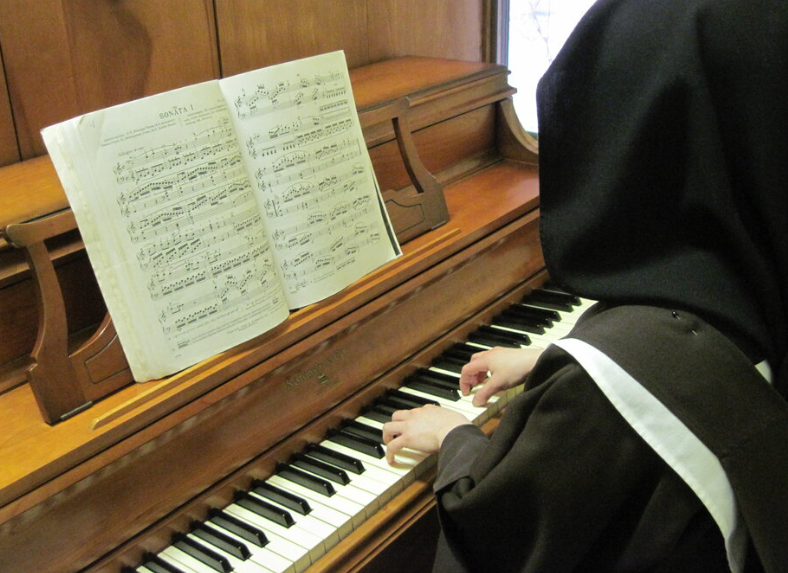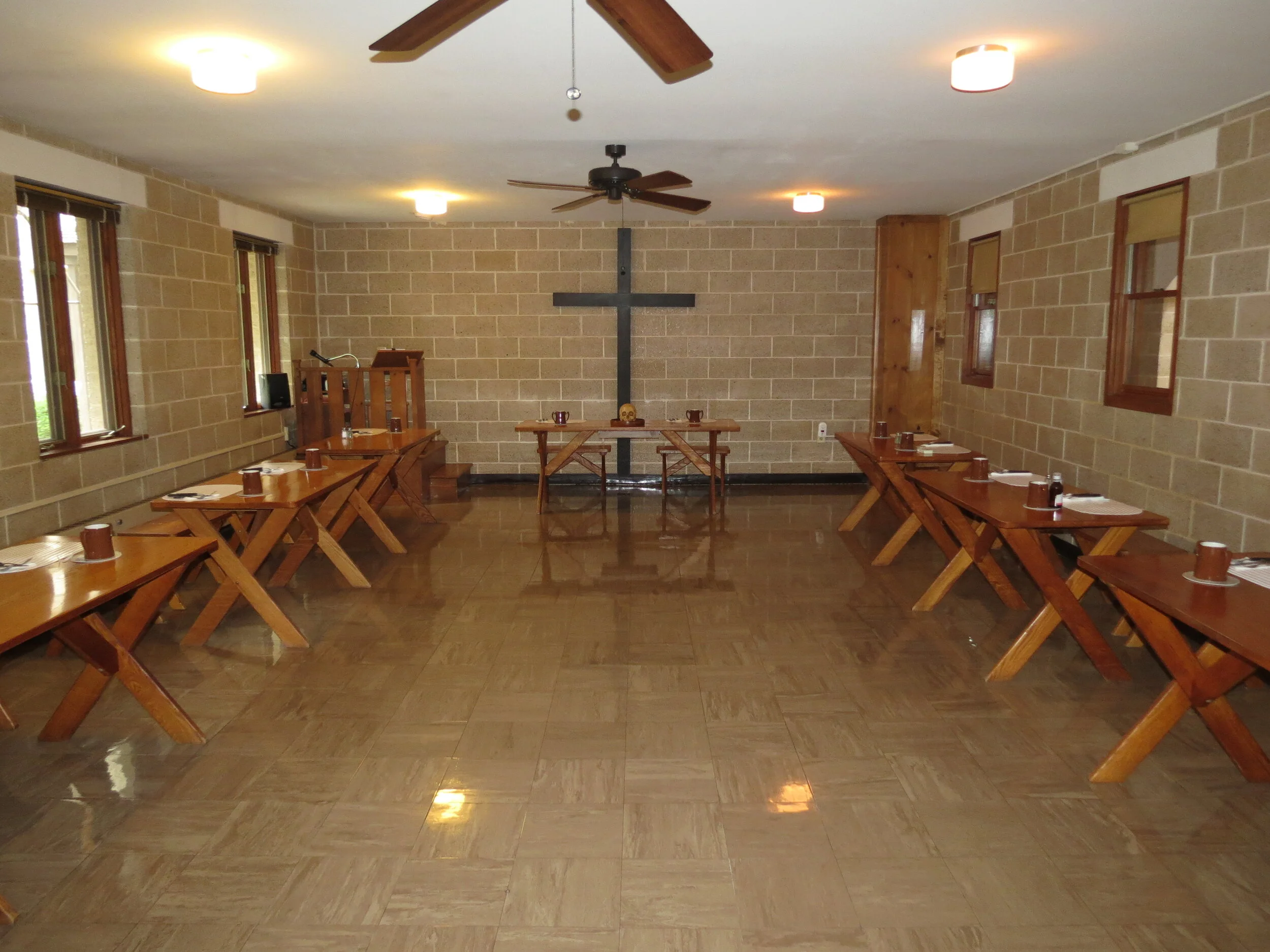Who We Are
A Charism of Contemplation
The Discalced Carmelite Nuns of Flemington, New Jersey, are a community of cloistered, contemplative religious under solemn vows. By their style and way of life, they express their call to follow Our Lord ever more closely in silence and solitude. Prayer, both communal and solitary, is the center of this life.
“Through your cloistered lives the sick are comforted, the needy assisted, hearts are reconciled, and the poor have the Gospel preached to them.”
The Flemington Carmel chooses to maintain strict enclosure, wear the full habit as a sign of poverty and consecration to God, and preserves many of the traditional monastic observances. The lifestyle is simple and austere, but not excessively so. Two daily hours of recreation enrich and enliven community living. In the words of Saint Teresa herself… “Lord, deliver us from gloomy saints!”
Discalced Carmelite nuns are called to a vocation of prayer. Through their charism of contemplation, they fill an important role in the Universal Church – to bring souls to God.
In the documents of Vatican II, the modern-day mission of contemplative religious life is outlined. This mission has remained the same for centuries: “For they offer to God a sacrifice of praise which is outstanding. Moreover, the manifold results of their holiness lend luster to the People of God which is inspired by their example and which gains new members by their apostolate which is as effective as it is hidden… thus they are revealed to be a glory of the Church and a wellspring of heavenly graces”.
“Love your separation from the world which is perfectly comparable to the biblical wilderness. It is there that the Lord speaks to your heart and closely associates you in His work of salvation.”
Carmel is the Order of Our Lady. She is the Mother and model for our life of joyful obedience and service. The ancient traditions of the Order begin with the Prophet Elijah. His ardent cry, “With zeal have I been zealous for the Lord God of Hosts,” is Carmel’s inspiration.
Saint Teresa of Avila inherited Elijah’s burning zeal for the glory of God and of His Church. Her unique charism was to instill this spirit of totality in her Carmelite daughters.
Discalced Carmelite nuns throughout the world continue to pray for the salvation of souls, the ministry of priests and other petitions brought to them. They participate in the work of Jesus Christ and His Church.
For more information about contemplative nuns, please visit Seeking the Face of God.
Liturgical Prayer
At specific times during the day the Liturgy of the Hours is recited by the community.
Participation in this great prayer of the Church with its cycle of psalms is a powerful expression of the needs and longing of all humanity, and implores God’s mercy and peace for the world.
Quiet Prayer
Two hours each day are given to personal quiet prayer.
Saint Teresa of Avila, Mother and Foundress of the Discalced Carmelite Order, describes prayer as ‘conversation with Christ”. The loving relationship with Jesus which develops in this way gradually comes to pervade the whole day. This is what a Carmelite is meant to be – living prayer in the Heart of the Church. This is our vocation
Manual Work
Manual work has always been an important part of monastic life.
It is an authentic witness to the vow of poverty and provides a healthy balance for an intense spiritual life. All share in the common household and gardening tasks, and also in the work by which we help to support ourselves (including printing, sewing and various forms of hand-crafts).
Recreation
Two daily hours of recreation enrich and enliven community living.
Horarium
Scripture calls us to pray always, to seek God in all that we do. The Carmelite life is based on living this Divine request. The Mass is the highlight of each day; Our Lord’s abiding Presence draws every other activity into a continual sacrifice of praise and thanksgiving.
Morning
5:15 Rise
5:35 Liturgy of the Hours (Lauds)
6:00 Prayer
7:00 Holy Mass, Thanksgiving
7:45 Liturgy of the Hours (Terce)
8:00 Coffee, Spiritual Reading
8:45 Manual Work
Afternoon
11:00 Liturgy of the Hours (Sext)
11:15 Examination of Conscience
11:25 Dinner followed by an hour of Recreation
1:00 Liturgy of the Hours (None)
1:20 Quiet Period
3:00 Prayers For the Dying - Manual Work
Evening
4:30 Liturgy of the Hours (Vespers)
5:00 Prayer
6:00 Supper
7:00 Recreation
8:00 Liturgy of the Hours (Compline)
8:20 Free time
9:00 Liturgy of the Hours (Matins)
Followed by spiritual reading, free time or work time
11:00 Retire
“Mental prayer is nothing else than an intimate sharing between friends; It means taking time frequently to be alone with Him who we know loves us.”





